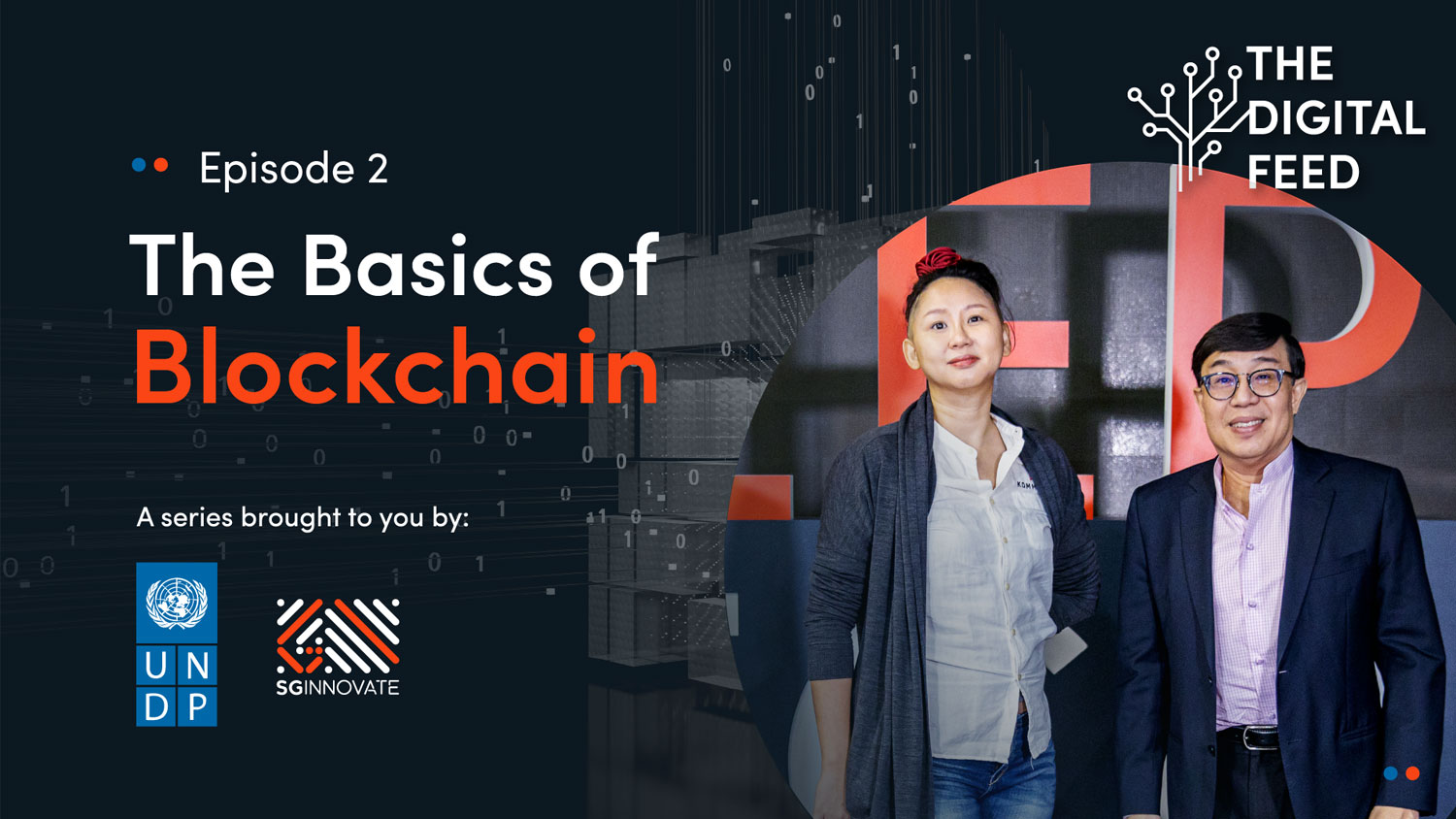The Digital Feed Episode 2: Blockchain for a More Transparent Food Chain
Tue, 10/27/2020 - 12:00
Blockchain is finding many applications in making global value chains more efficient and sustainable. In the previous episode of The Digital Feed, we explored the application of blockchain for enabling traceability and preventing food fraud. In this episode, we took a step back to take a wider look at the technology itself, its potential, and what governments need to do to scale its adoption.
To understand the basics of blockchain, we interviewed David Lee, Professor at the Singapore University of Social Sciences, and Karen Teoh, COO and Co-founder of Kommerce, a fintech startup that uses blockchain to enable African businesses to access capital markets.
Access to trustworthy information can help finance become more accessible and affordable, especially for businesses in emerging markets. Highlighting the lack of transparency and frequent cases of cheating in agricultural commodities trading, Teoh remarked that “banks are not incentivised to offer a lower interest rate even to clients who pay back on time”, adding that it’s the end consumers in the developing world who end up paying more for their calories.
Blockchain makes information more accessible to stakeholders, thereby increasing trust among them and helping lower lending rates to businesses. Moreover, it lowers the cost of retrieving trustworthy information in case of a dispute. According to Prof Lee, this acts as an incentive for stakeholders to act in a way that is good for the entire ecosystem and has important implications for reducing food wastage, cost of insurance as well as lending rates.
On the question of how governments can help scale adoption of blockchain, both Teoh and Prof Lee stressed on the importance of developing digital infrastructure, including internet connectivity, standards for interoperability in blockchain and allied technologies, and portable IDs which can be trusted worldwide. Prof Lee added that international organisations like UNDP can help flatten the “learning curve” for countries by initiating dialogues on interoperability and global standards.
If you prefer to listen to an audio-only version of these episodes, check out our podcast channel on Spotify here.
This article was first published here. The Digital Feed is an interview series in collaboration with UNDP Global Centre for Technology, Innovation and Sustainable Development in Singapore. This series will delve into the latest developments, trends and insights in ArgiTech and the food space.
Trending Posts
- From satellites to startups, Singapore’s space sector is pushing new frontiers
- How leaders should rethink cybersecurity strategy
- How to Future-Proof a Career in Deep Tech? Start here.
- The future of fusion energy: What will it take to bring the power of the stars to earth?
- Keeping satellites safe: How CYSAT Asia 2026 is tackling space cybersecurity






